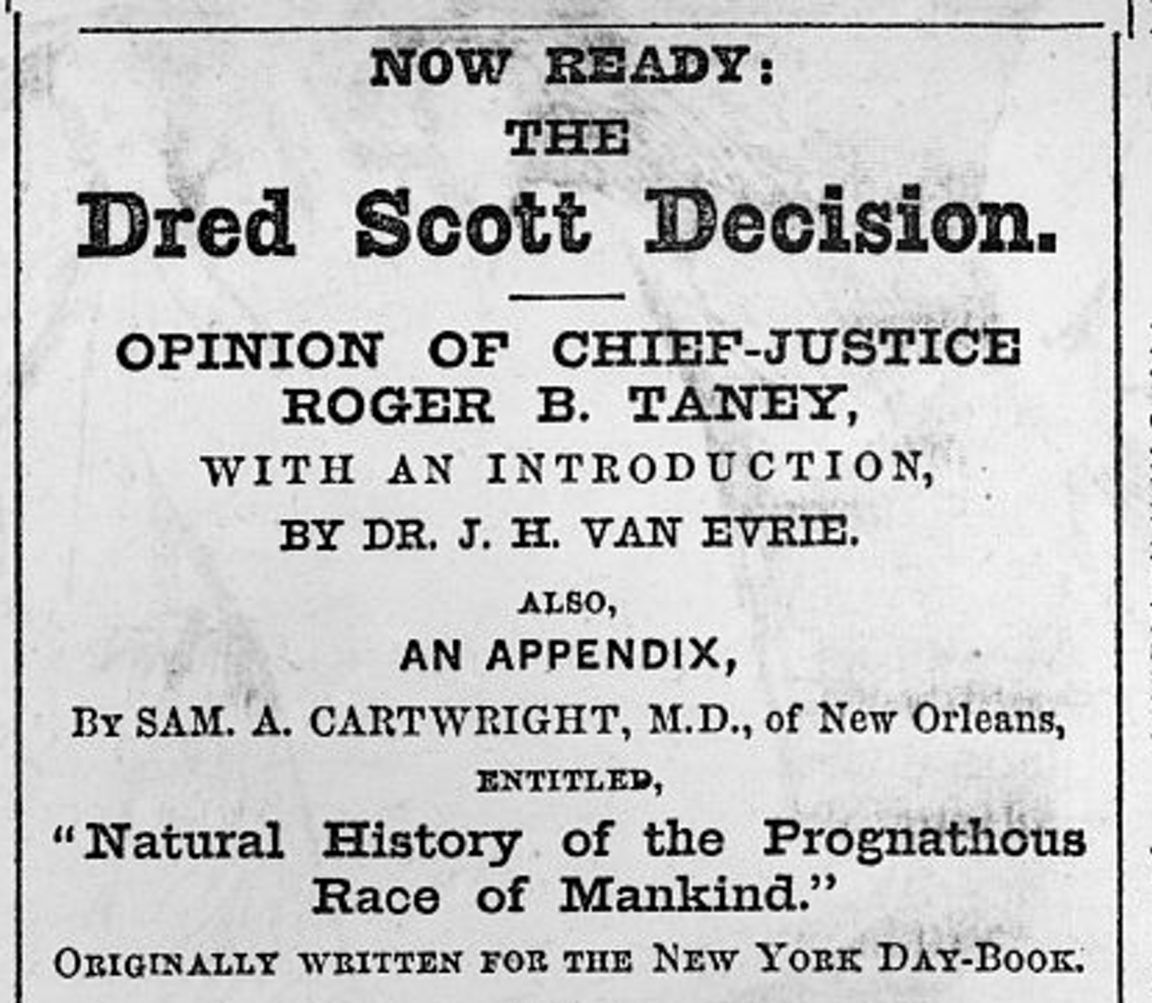
Dred Scott Decision
In the case Dred Scott v. Sanford, the Supreme Court ruled that slaves were not citizens and could not be free unless their owners freed them. This highly controversial decision undermined decades of compromise and set the country on a path toward civil war.
Issue
In 1846, Dred Scott sued his owner in Missouri court for freedom. He argued that because he had previously lived in territories where slavery was illegal, he and his family were now free people. After losing his case, Scott appealed the decision to the Missouri Supreme Court, which upheld the lower court’s decision. In 1853, Scott sued his owner again, but this time in federal court. When Scott lost this case as well, he appealed the decision and his case was then heard by the US Supreme Court. In a 7-2 decision, the justices also ruled against Scott and denied him his freedom.
Causes
An 1807 Missouri statute allowed enslaved people to sue for freedom if they believed they were wrongfully in servitude. These cases came to be known as “freedom suits”. Ruling on one such freedom suit in 1824, the Missouri Supreme Court established the precedent of “once free, always free.” According to this precedent, if a slave owner took a slave to live in a free state, the slave would be considered a free person even if he or she was returned to a slave state. When Dred Scott filed a freedom suit in Missouri against his owner in 1846, slavery was a more hotly contested issue and different judges sat on the Missouri Supreme Court. The judges overturned the “once free, always free” decision and ruled against Scott.
The decision by the Missouri court was upheld and further extended by the US Supreme Court in what is now known as the Dred Scott decision. The Supreme Court ruled that anyone who was a descendant of African slaves, regardless of whether state laws had set them free, could not become a citizen (ironically abrogating states’ right to establish their own laws on slavery). The justices also overturned the Missouri Compromise, stating that it was unconstitutional for Congress to give freedoms and citizenship to Black people.
Outcome
The Dred Scott decision snapped the tightrope that policymakers had walked for 70 years on the issue of slavery. After the Court announced its decision, the Southern press declared slavery to be legal throughout the country, not just in the South. In the North, however, the decision was met with public outcry. The Northern media attacked the Court’s decision for its pro-Southern bias and flawed legal reasoning. In addition to decrying the ruling, many Northern courts and politicians altogether ignored it and continued passing measures to prohibit slavery and give Black people more freedom.
The Dred Scott decision stoked the flames of unrest in the country, directly leading to the election of Abraham Lincoln and, eventually, the start of the Civil War. Many historians today agree that the ruling on Dred Scott v. Sandford is one of the Supreme Court’s worst decisions.
Feature image: Newspaper advertisement for the pro-slavery pamphlet inspired by the Supreme Court’s Dred Scott decision by Van Evrie, Horton & Co., No. 40 Ann Street, New York. (Source: Library of Congress)

